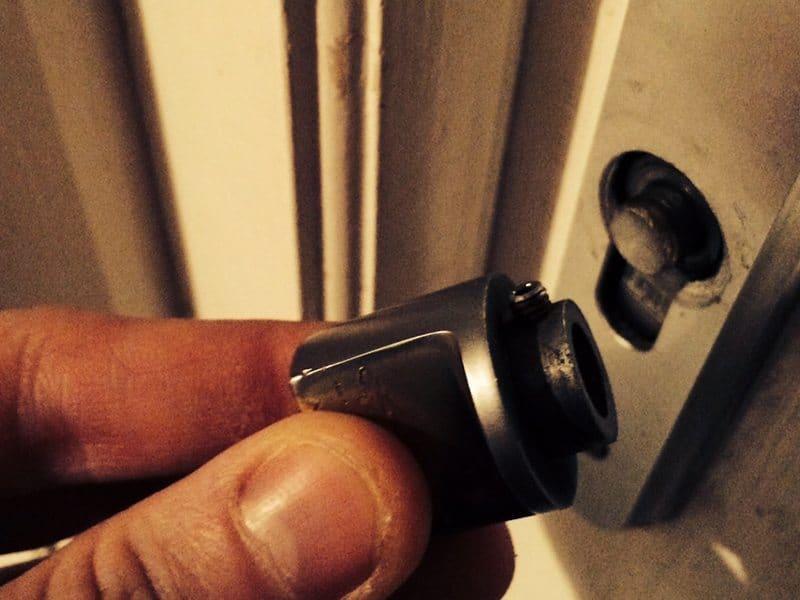Door locks are an essential aspect of home security, and a broken lock can compromise your safety, privacy, and peace of mind.
This article will explore the risks associated with broken door locks, the common causes, and the signs to look out for to prevent home lockouts.
Additionally, we will discuss preventative measures to avoid broken locks and what to do if you find yourself locked out of your home. By understanding these factors, you can ensure the continued security and integrity of your property.
Why Broken Door Locks Pose Risks
Broken door locks can lead to several problems for homeowners, with the most significant risks being compromised home security, inconvenience, and potential property damage.
Compromised Home Security
A broken lock makes it easier for burglars to gain access to your property, putting your family and belongings at risk.
In many cases, burglars target homes with weak security systems, and a malfunctioning lock is a clear sign of vulnerability. Ensuring that your door locks are functioning correctly is crucial to keeping your home safe from intruders.
Inconvenience and Frustration
A broken lock can lead to a frustrating and inconvenient home lockout, leaving you stranded outside your property. Depending on the time of day, weather conditions, and your personal circumstances, being locked out of your home can be a distressing and even dangerous situation.
Potential Property Damage
Attempting to fix a broken lock without the proper tools or expertise can result in further damage to your door or lock mechanism, leading to costly repairs. It is essential to seek professional assistance when dealing with a broken lock to avoid causing unnecessary damage to your property.
Common Reasons for Broken Door Locks
There are several reasons why door locks can break or malfunction, with the most common causes being wear and tear, incorrect installation, forced entry attempts, and environmental factors.
- Wear and Tear
Over time, door locks can wear down due to regular use, eventually leading to a malfunction. Components within the lock mechanism may become misaligned or worn, making it difficult to turn the key or fully engage the locking mechanism.
Regular maintenance and inspection of your door locks can help to identify signs of wear and tear before they become a significant issue.
- Incorrect Installation
If a door lock is not installed correctly, it can lead to various problems, including the lock becoming loose, misaligned, or even breaking entirely.
Incorrect installation can also make it easier for burglars to compromise the lock, putting your home at risk. It is essential to ensure that your locks are installed by a qualified professional to avoid these issues.
- Forced Entry Attempts
Attempts to break into your home can result in damage to your door locks. Burglars may use tools or brute force to compromise the lock, leaving it broken or inoperable.
If you suspect that your lock has been tampered with or damaged, it is essential to have it inspected and repaired or replaced as soon as possible.
- Environmental Factors
External factors, such as extreme temperatures, humidity, and corrosive elements, can contribute to the deterioration of door locks.
Metal components can rust or corrode, while wooden doors can warp or swell, causing issues with the lock mechanism.
Proper maintenance and protection against environmental factors can help to prolong the lifespan of your door locks.
Signs Your Door Locks May Be Failing
By identifying the early warning signs of a failing door lock, you can take action to prevent a home lockout or security breach. Common signs that your locks may need attention include difficulty turning the key, loose or wobbly locks, and keys getting stuck or breaking.
Difficulty Turning the Key
If you are experiencing difficulty turning the key in your lock, it could be a sign that the lock mechanism is misaligned or that components within the lock are worn or damaged. Ignoring this issue could result in the lock failing entirely, leaving you locked out of your home.
Loose or Wobbly Locks
Loose or wobbly locks can be a sign of incorrect installation or wear and tear on the lock mechanism. A loose lock can make it easier for burglars to gain entry to your home and may eventually result in the lock failing.
Key Getting Stuck or Breaking
A key that frequently gets stuck or has broken off in the lock is a clear indication that there is an issue with the lock mechanism. Continuing to force the key in a faulty lock can lead to further damage and potentially result in a home lockout.
Preventative Measures to Avoid Broken Locks and Home Lockouts
To prevent broken locks and home lockouts, it is essential to practice regular maintenance, install high-quality locks, and seek professional help when necessary.
- Regular Maintenance
Regular inspection and maintenance of your door locks can help to identify signs of wear and tear before they become a significant issue. Lubricating the lock mechanism, tightening loose components, and checking for signs of corrosion can help to prolong the lifespan of your locks and prevent malfunctions.
- Installing High-Quality Locks
Investing in high-quality, durable door locks can help to reduce the risk of lock failure and home lockouts. Look for locks that have been tested and certified by reputable organizations, such as the British Standards Institution (BSI) or Sold Secure, to ensure that you are installing a reliable and secure product.
- Seeking Professional Help
If you suspect that your door lock is damaged or malfunctioning, it is essential to seek the assistance of a qualified locksmith. A professional locksmith can identify and repair any issues with your lock, ensuring that your home remains secure and that you avoid the inconvenience of a lockout.
What to Do If You’re Locked Out of Your Home
If you find yourself locked out of your home, it is essential to stay calm, assess the situation, and consider your options.
- Stay Calm and Assess the Situation
Take a moment to assess the situation and determine whether there is an alternative way to enter your home.
Check to see if you have a spare key available or if a family member or neighbour has a spare key that they can provide.
It is also essential to consider the cause of the lockout – if the lock is broken or damaged, attempting to force entry may cause further damage to your property.
- Contact a Locksmith
If you are unable to gain entry to your home through alternative means, it is crucial to contact a professional locksmith.
A qualified emergency locksmith can safely and efficiently gain entry to your property without causing unnecessary damage, and they can repair or replace the broken lock as needed.
- Consider Alternative Entry Points
In some cases, it may be possible to gain entry to your home through an alternative entrance, such as a window or a back door.
However, this should only be considered if it is safe to do so and if there is no risk of causing damage to your property.
Keep in mind that attempting to enter your home through an unconventional means could be viewed as suspicious by neighbours or passersby, so it is essential to exercise caution and judgement.
Key Takeaways
Broken door locks pose significant risks to homeowners, including compromised home security, inconvenience, and potential property damage.
By understanding the common causes of broken locks and the signs to look out for, you can take preventative measures to avoid lock failure and home lockouts.
Regular maintenance, installing high-quality locks, and seeking professional help when necessary can help to ensure the continued security and integrity of your property.
If you do find yourself locked out of your home, remember to stay calm, assess the situation, and contact a professional local locksmith for assistance.

